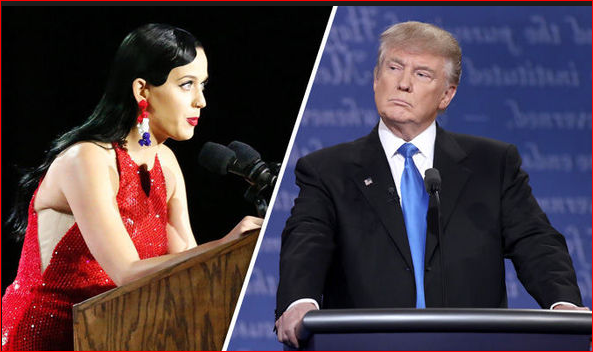Jean Meyer believes the best and brightest are alone on college campuses. The 28-year-old Frenchman says college students are only communicating through technology and so career driven that they are putting love on the back burner. Figuring these overachievers needed a way to meet each other efficiently, because they don't have the time or inclination to hang out in the college pubs, Mr. Meyer, a business student at Columbia University founded Datemyschool.com, an online dating service for busy and discriminating students.
Private investors have staked the site with a $500,000 investment, the New York Times reports, and it is now operating at Columbia, New York University, and the Fashion Institute of Technology. "Created with Balazs Alexa, also a 28-year-old M.B.A. candidate at Columbia, Date My School offers a highly selective shortcut to love for students who are fluent in social media but too entrenched in their studies for much of an actual social life," writes Hannah Miet for the Times.
Coed Teresa Finney likes Meyer and Alexa's site, because traditional dating sites aren't working for her and she doesn't have the free time to waste looking for Mr. Right at Starbucks. "I am interested in dating people who will not feel threatened by my schedule."
"The site is elitist, and all the better for it," Ms. Finney tells the Times. Although the political structure of democracy or republic isn't going away anytime soon, sites like this may bring together some of the world's most motivated young people who reside on right-hand tail of the IQ bell curve.
The creative explosion could be astounding, serving to change the world through technology and commerce rather than the current wasting of energy and time on political solutions that are little more than assorted pep rallies to encourage sociopaths.
In his essay, "Natural Elites, Intellectuals, and the State," Hans-Hermann Hoppe wrote of a natural elite — a group of people who would rise to leadership roles in a free society as an outgrowth of voluntary transactions rather than state force. These transactions occurring between private-property owners would be "nonegalitarian, hierarchical, and elitist."
Society would look to the natural elite due to their natural abilities and talent. The elites would achieve wealth, wisdom, and bravery, and in turn come to possess the natural authority, with their opinions and judgments enjoying respect. Hoppe goes on to emphasize that, through selective mating and marriage, positions of natural authority would likely to be passed on within a few families; it is to these families that society would turn with its conflicts.
Date My School is looking to expand to other campuses on both coasts. For those who know the Facebook story, this all sounds familiar, and Mr. Meyer is sometimes called the French Zuckerberg.
But while Facebook now tries to connect everyone everywhere, Date My School is only for the selective studying at exclusive universities — at least for now.
Many college students and former students will say there's no need for online help in dating and finding romance. After all, there are thousands of students cohabiting in a small area; it's a target-rich environment. Sure, for those who enjoy and excel at social interaction. Hitting the bars, dances, and events to practice moves they've developed to charm the opposite sex is enjoyable for those who continually practice this sort of thing.
However, for the career-driven and nerdy, this four-to-six-year mating ritual dressed up in school colors is at best an annoyance and may in fact be downright painful. Advanced calculus is easy for these folks, but playing the games to attract Mr. or Ms. Right (or Right Now) is a foreign concept, and the learning curve is steep.
The division of labor works in dating as it does with anything else. The academically inclined should focus their energies and time on their studies. That's what they enjoy and what they're good at. And now these young entrepreneurs have created a way to efficiently match potentially compatible people. "If you are in grad school at N.Y.U. or Columbia, I have to assume you are smart, ambitious and motivated — at least one of the three," Columbia student Jonathan Fainberg told the NYT. "So far, everyone I have met through Date My School has been an impressive individual, even if they weren't dateable for me."
Although new, online dating has rapidly grown to be a $4 billion business. Its reported that one in five people in a committed relationship met online. The most successful sites focus on pairing people by race, religion, or sexual orientation. It may not seem romantic, but being introduced to someone with the same intellectual capacity, drive, and common interests only makes sense.
In 2002, a Wired magazine article forecast that
Twenty years from now, the idea that someone looking for love without looking for it online will be silly, akin to skipping the card catalog to instead wander the stacks because "the right books are found only by accident." Serendipity is the hallmark of inefficient markets, and the marketplace of love, like it or not, is becoming more efficient.
Mr. Meyer tells the Times, "Young people today have the impression that dating is like buying consumer goods." Dating may in fact be like buying consumer goods, but long-term relationships would be analogous to what Austrian economist refer to as higher-order goods.
Those with low time preferences will be more inclined to seek out partners they can grow and thrive with emotionally for the long haul. Selective online dating enhances these prospects. Conversely, as Tho Bishop describes in his wonderful article "A Romantic Boom and Bust," playing games for short-term romantic gain is the equivalent of malinvestment.
In the modern world, only those with high time preferences will leave love to serendipity. Those with low time preferences, high mental horsepower, and motivation will use technology to find a mate. Over time, Hoppe's natural elite will emerge — not through politics but via the division of labor amplified by technology and entrepreneurial creativity.



